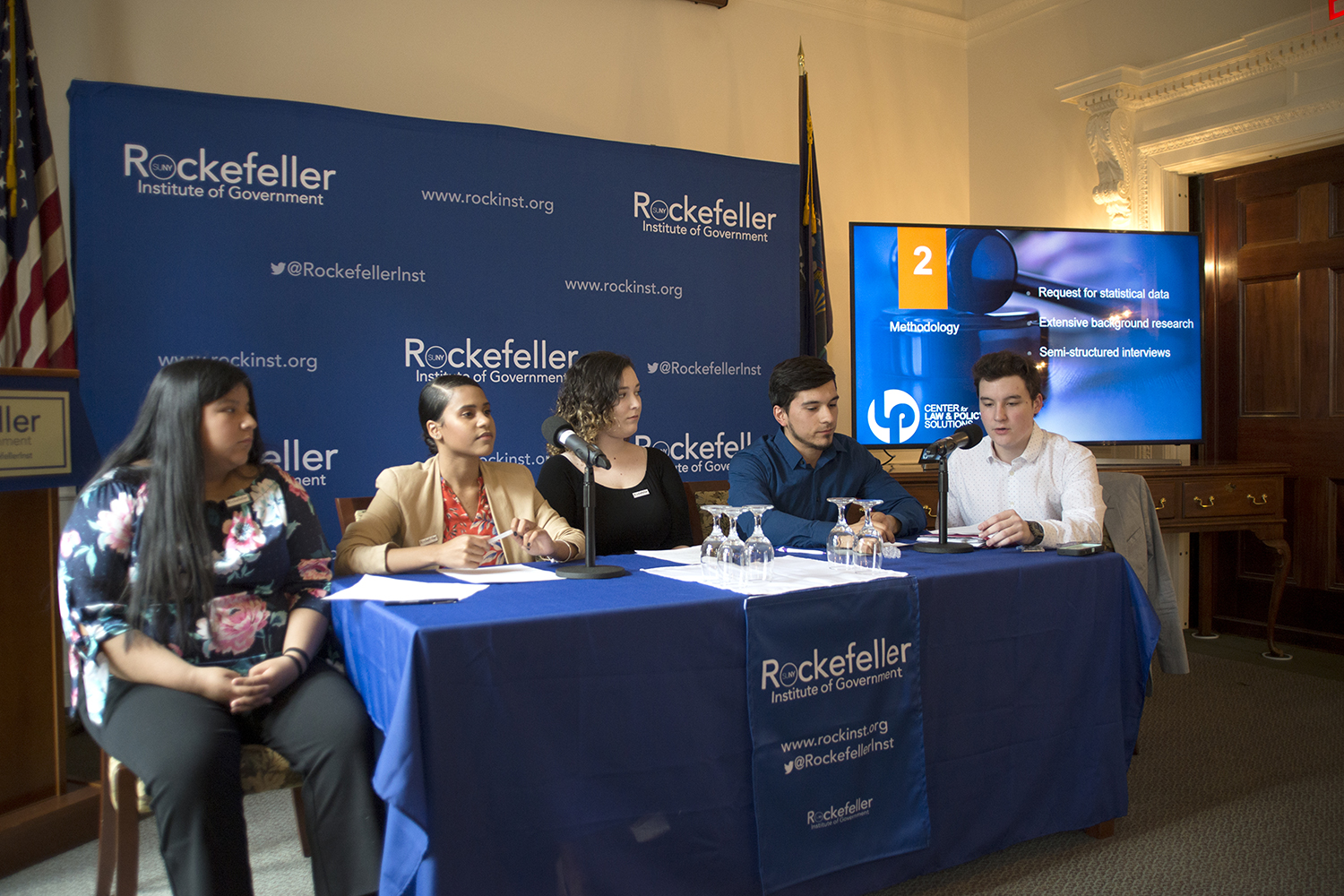In March 2018, the Rockefeller Institute of Government, in partnership with the Government Law Center at Albany Law School, the Rockefeller College of Public Affairs, and the University at Buffalo School of Law announced the formation of the Center for Law & Policy Solutions (CLPS). At the heart of our mission is the belief that better policy and informed decision making start with better data.
In our efforts to inform the development of good public policy through evidence-based practice and research, the Center for Law & Policy Solutions launched a paid, credit-bearing internship in the spring of 2018. As part of this new program, student interns assist policymakers in identifying relevant solutions to complex problems through rigorous data collection and analysis. At the center, we see the internship not only as an example of our commitment to good governance, but as part of a broader effort to give tomorrow’s leaders a firm grounding in the use of data in the policymaking process.
This year we selected five bright and articulate students from the University at Albany to examine drug treatment courts as a potential solution to the opioid crisis:
+ Prijenett S. Flores
+ Joel Alexander Lopez
+ Giliean Pemble-Flood
+ Hannah Riegel
+ Maria Segura
Many of the interns are still early in their academic careers, with four out of five of them just now completing their sophomore year. This was not by accident. While most internships are reserved for upperclassmen, part of our mission is to create new opportunities for younger students who are typically not eligible for these types of experiences. We’ve charted this course based on the understanding that an early internship experience can improve retention rates, strengthen academic success, and enhance the overall learning experience of our young students.
Although we will continue to study a wide range of issues at the center — from sanctuary cities an immigrant rights to criminal justice reforms and the emerging opioid crisis — this exceptional group of students took drug diversion courts as their topic of inquiry. At a time when the opioid epidemic threatens to overwhelm and disrupt every aspect of our judicial system, the study of these so-called problem-solving courts could not be more timely.
Presentation of Findings











